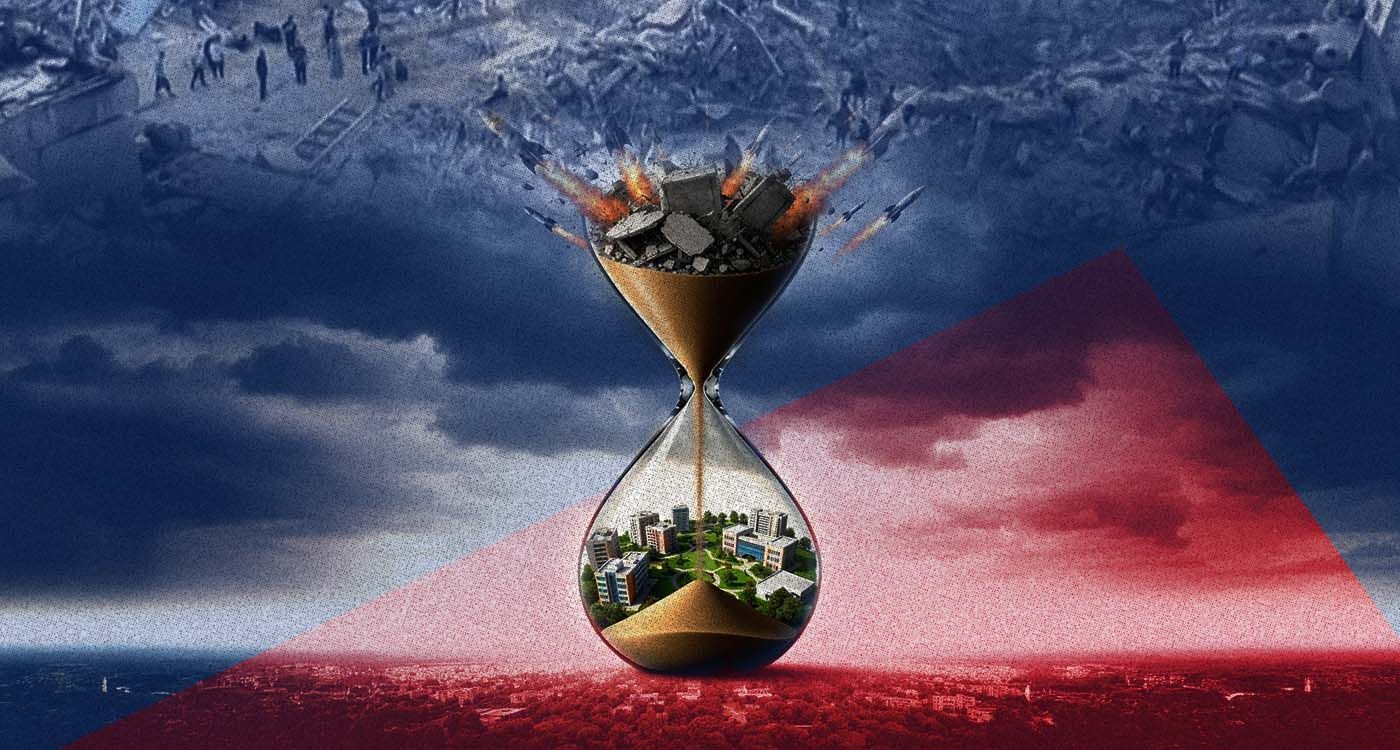- Home
- Middle East
- Game Over for Hamas

©This is Beirut
President Trump does not lend his name to a plan lightly. His 21-point program to end the Gaza War has garnered unprecedented support from Israel, Saudi Arabia, the United Arab Emirates, Egypt, Jordan, Turkey, Qatar, and Pakistan. For Hamas, the options are stark: Accept the plan or face collective ruin. But why did it take nearly two years to reach a solution that could have been implemented as early as October 8, 2023, the day after Hamas’s devastating attack?
The answer lies in the heavy toll of change in the Middle East, paid in Israeli blood and treasure. Israel’s decisive victories in its seven-front war—against Hamas in Gaza, Hezbollah in Lebanon, Iranian proxies in Syria, Iraq, and Yemen, and the crippling of Iran’s nuclear program and military capabilities—created the geopolitical conditions for Trump’s plan.
Israel’s military successes, achieved through relentless operations and strategic precision, dismantled the networks that emboldened Hamas and its allies. Without Israel’s resolve, any peace plan would have remained a diplomatic fantasy.
Israel’s objectives have been clear since the war’s outset: secure the release of all hostages taken by Hamas on October 7, 2023, and replace Gaza’s government with a trustworthy administration. Neither the Palestinian Authority (PA), plagued by corruption and ineffectiveness, nor Hamas, a terrorist organization, fits Israel’s criteria.
A third Palestinian party is needed, with potential candidates like Muhammad Dahlan, a former Fatah leader with strong Gulf ties; Salam Fayyad, a reform-minded former PA prime minister; or Nasser Qudwa, a respected diplomat. The challenge has been legitimacy—installing a new government in war-torn Gaza required broader Arab and Islamic support. The Arab League and the Organization of Islamic Cooperation have now stepped in to provide this critical backing.
As early as February, heavyweights of the Arab League—Saudi Arabia, Egypt, Jordan, the UAE, and Qatar—met in Riyadh and outlined a vision mirroring the later plan that Trump drafted: A Gaza government independent of Hamas and the PA, with Gulf countries pledging billions for reconstruction.
On March 4, Cairo hosted an “emergency summit for Gaza” to formalize this as an Arab League plan. However, the PA derailed the effort. Palestinian President Mahmoud Abbas insisted on limiting the transitional authority’s term to six months, after which the PA would assume control, a move seen as self-serving. Egypt further complicated matters by inflating reconstruction costs to an exorbitant $50 billion, a figure that strained credulity and alienated Gulf donors. Frustrated, Saudi Arabia and the UAE sent low-level representatives to Cairo, signaling their displeasure with the PA’s maneuvering and Egypt’s overreach.
Israel, undeterred, pressed on with its military campaign, refusing to leave the job half-finished.
The Arab League shifted tactics, attempting to shame Israel into halting the war through the United Nations. A July declaration at the UN went largely ignored in Washington and Jerusalem.
By September 2025, President Trump, who had been eager to resolve the conflict even before his January 21 inauguration, tasked his team, including Jared Kushner (brought out of retirement), to craft a plan. The result was the 21-point plan, a pragmatic framework balancing the needs of all parties.
For Israel, the plan checks critical boxes: immediate hostage release, Hamas’s complete removal from power, Gaza’s demilitarization, and Israeli control over the strip’s security perimeter. The strip’s domestic security would fall to an Arab-supervised Palestinian force, with a Gaza government independent of both Hamas and the PA, ensuring no return to the status quo.
Arab governments also benefit significantly. An effective Gaza administration would curb violence and corruption, manage reconstruction, and attract Gulf investments. A revitalized Gaza economy could serve as a model for the West Bank, paving the way for a Palestinian state capable of peaceful coexistence with Israel.
The Palestinians must decide whether to seize this opportunity, but Trump’s plan, approved by Israel and backed by a coalition of Arab and Islamic nations, offers a clear path forward.
Hamas has yet to formally accept the plan. However, with overwhelming regional support, rejection would isolate it further, rendering its position untenable and tantamount to suicide.
The Gaza War’s ripple effects have reverberated in Lebanon, where anti-peace voices have exploited the conflict to blame Israel for regional instability. A successful peace in Gaza could demonstrate that coexistence is possible, encouraging Lebanon to disarm Hezbollah and pursue a peace treaty with Israel, much like Jordan did in 1994 after grasping the benefits of the peace process. Such opportunities are rare and fleeting in a region scarred by conflict.
Trump’s 21-point plan represents a turning point for Gaza and the broader Middle East. Under Arab pressure, the Palestinians will likely take it. Lebanon should jump on the opportunity too or risk being at war indefinitely.
Read more




Comments